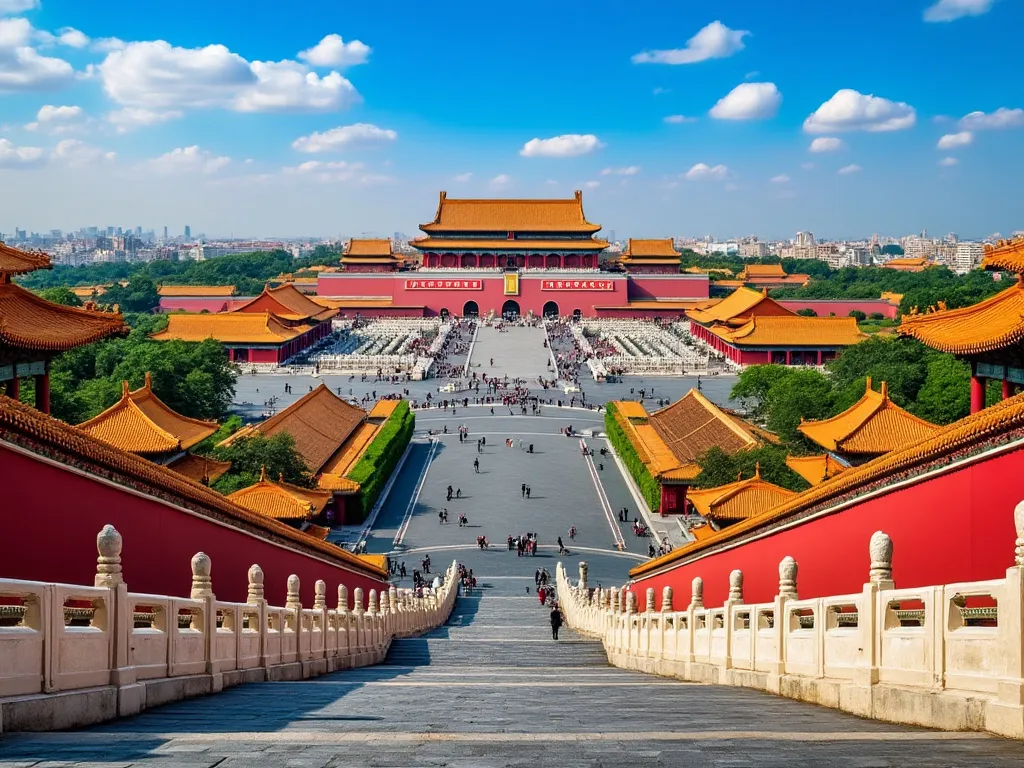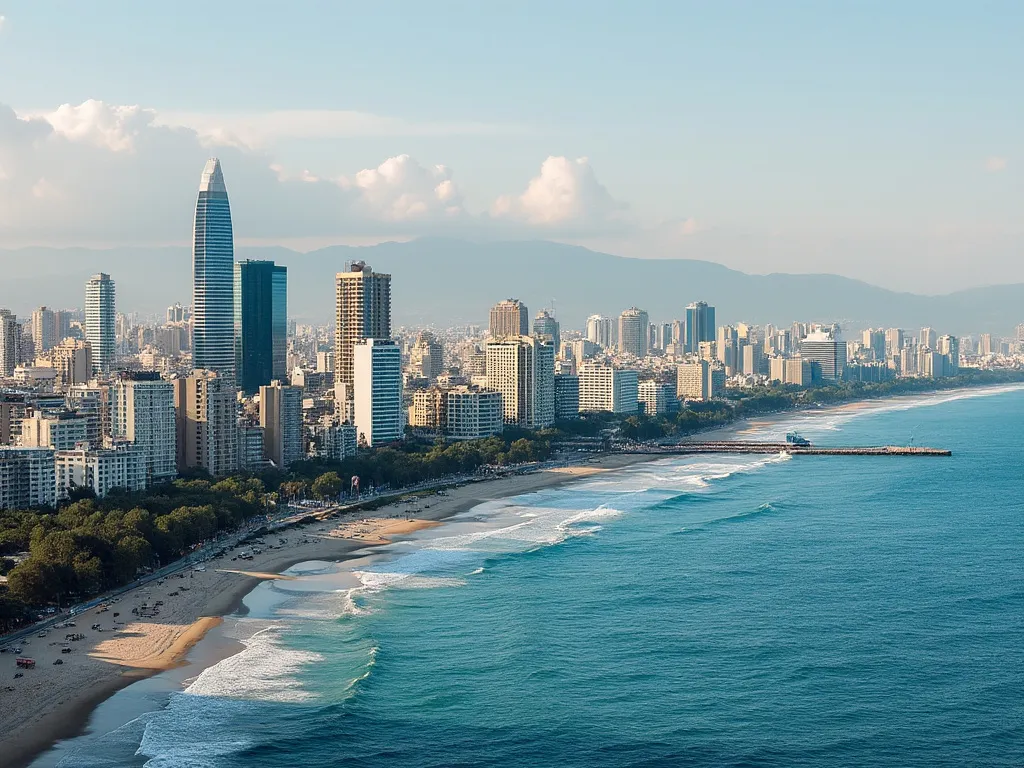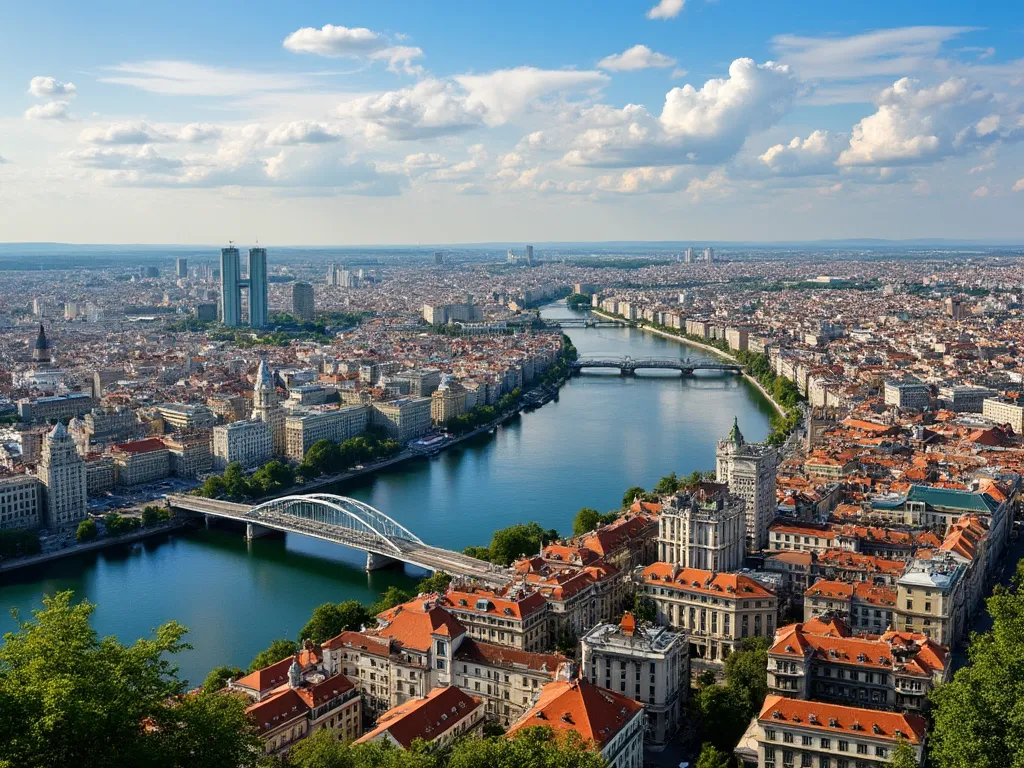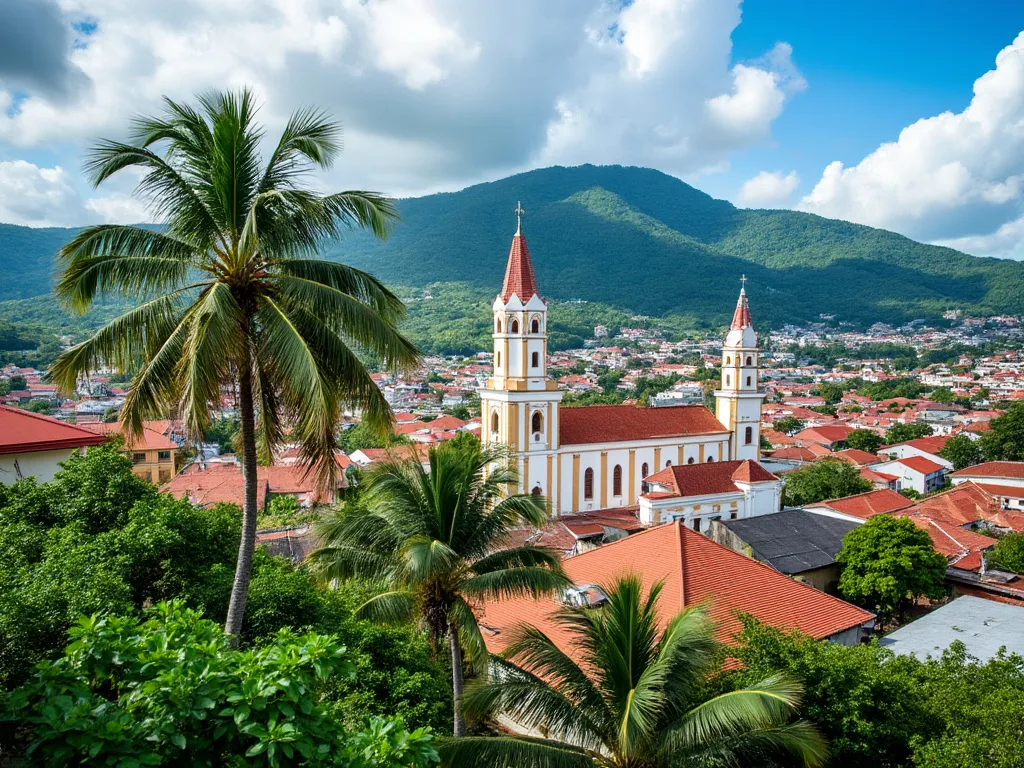
Beijing, the capital city of China, is a global hub for politics, economy, culture, and education. With a rich history dating back over 3,000 years, Beijing is a city that seamlessly blends ancient traditions with modern innovations.
Beijing Information
| Country | 🇨🇳 China |
| Population | 21,540,000 (urban area) |
| Coordinates | 39°54′N 116°23′E |
| Area | 16,800 km² (6,487 sq mi) |
| Climate | Humid continental climate |
| Language | Mandarin Chinese |
| Currency | Renminbi (RMB) |
| Time zone | China Standard Time (UTC+8) |
| Proximity to other major cities | Tianjin (120 km), Tangshan (200 km), Pyongyang (790 km) |
Historical Background of Beijing
Beijing's history dates back to the 1st millennium BC, when it was a small trading post. Over the centuries, the city has been ruled by various dynasties, including the Qin, Han, Tang, Song, and Ming. In 1421, the Ming dynasty built the Forbidden City, which became the imperial palace of the Ming and Qing dynasties. Beijing has been the capital of China since 1949, when the Communist Party of China came to power.
Geographical Location of Beijing
Beijing is located in the northern part of China, at the northern tip of the North China Plain. The city is situated at an elevation of 50 meters (164 feet) above sea level and is surrounded by mountains to the north, west, and east. The city's terrain is generally flat, with some hills and mountains in the surrounding areas.
Cultural Significance of Beijing
Beijing is a city steeped in culture and history. The city is home to numerous museums, galleries, and cultural institutions, including the Palace Museum, the National Museum of China, and the Beijing Opera. Beijing is also known for its traditional cuisine, including Peking duck, jiaozi (dumplings), and zhajiangmian (noodles with fermented bean sauce).
Economic Importance of Beijing
Beijing is the economic and financial hub of China, with a GDP of over $500 billion. The city is home to many multinational corporations, including technology giants like Huawei and Lenovo. Beijing is also a major center for finance, with the Shanghai Stock Exchange and the Shenzhen Stock Exchange having branches in the city.
Interesting Facts About Beijing
- Beijing is home to the world's longest wall, the Great Wall of China, which stretches over 13,170 miles (21,196 km).
- The Forbidden City, a UNESCO World Heritage Site, is the largest palace complex in the world.
- Beijing has the world's largest population of billionaires, with over 100 billionaires living in the city.
- The city has a unique dialect, known as Beijing Mandarin, which is the most widely spoken dialect in China.
Tourist Attractions in Beijing
Beijing is a city with countless tourist attractions, including:
- The Forbidden City
- The Great Wall of China
- The Temple of Heaven
- The Summer Palace
- The Ming Tombs
- The Beijing Zoo
Conclusion on Beijing
Beijing, the capital city of China, is a city that perfectly blends ancient traditions with modern innovations. From its rich history to its cultural significance, economic importance, and tourist attractions, Beijing is a city that has something to offer everyone. Whether you're interested in history, culture, food, or entertainment, Beijing is a city that is sure to leave you with unforgettable memories.
 Beirut
Beirut
 Belgrade
Belgrade
 Basse-Terre
Basse-Terre
 Basseterre
Basseterre